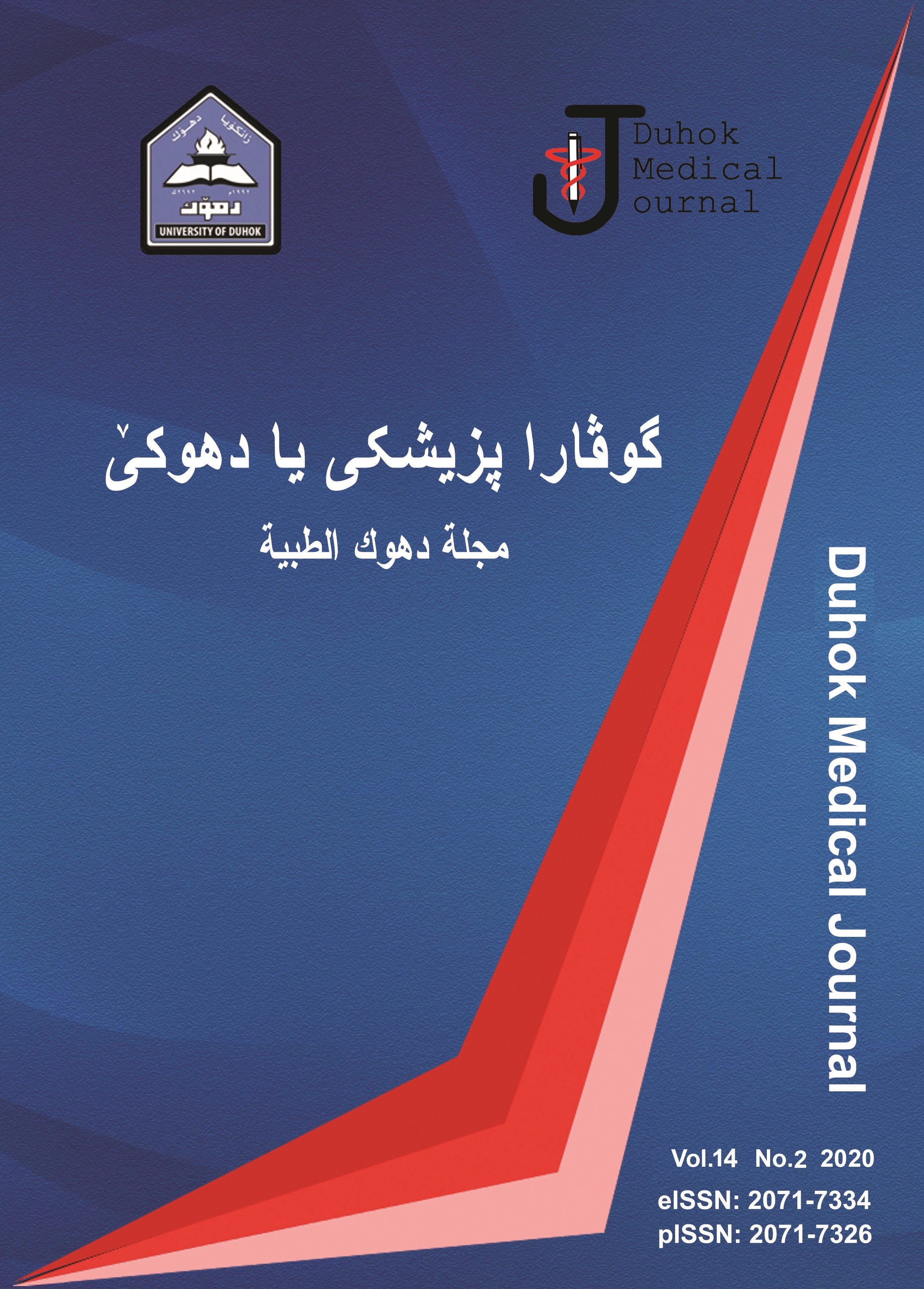PSYCHOLOGICAL VACCINATION DURING CORONA CRISIS, HYPOTHESES GENERATING
Abstract
https://doi.org/10.31386/dmj.2020.14.2.11
Background: Since December 2019, the world is increasingly facing a new public health crisis caused by a highly transmittable Coronavirus (CoV) in a pandemic outbreak threatening the human population all over the world. The World Health Organization (WHO) has assigned the disease with the name COVID-19(1). It is declared as a public health emergency of international concern with no evidence-based prevention or treatment yet. So far, millions of people have been affected, billions have been quarantined, and almost all countries are applying severe lockdowns, curfews, and travel restrictions, leaving the communities in isolation, insecurity, and distress. Several studies are underway to consider the rate of infection among children, and the rate of transmission from children to adults, because it has not been clearly understood yet. Based on a common bio-psycho-social immunity system, a multidisciplinary research project is suggested to examine the effectiveness of a novel Crisis Intervention Program for Children and Adolescents (CIPCA) as a first psychological "vaccine" to prevent post-traumatic psychopathology among children in the city of Duhok during the Corona crisis.
Downloads
References
2. Rasmussen SA, Thompson LA. Coronavirus disease 2019 and children: What pediatric health care clinicians need to know. JAMA Pediatrics.2020;174(8):743-744. https://jamanetwork.com/journals/jamapediatrics/fullarticle/2764248.
3. Gebhard C, Regitz-Zagrosek V, Neuhauser HK, Morgan R, Klein SL. Impact of sex and gender on COVID-19 outcomes in Europe. Version 2. Biol Sex Differ. 2020; 11(1): 25-29. doi: 10.1186/s13293-020-00304-9.
4. Danese A. Annual Research Review: Rethinking childhood trauma-new research directions for measurement, study design and analytical strategies. J Child Psychol Psychiatry. 2019; 62(4):251-254.
doi: 10.1111/jcpp.13160. [Epub ahead of print].
5. Greene AG, Saleh M, Roseman E, Sinert R. Toxic shock-like syndrome and COVID-19: A case report of multisystem inflammatory syndrome in children (MIS-C). Am J Emerg Med. 2020;(20)30:492-497.
doi: 10.1016/j.ajem. 2020.05.117. Online ahead of print.
6. Tay MZ, Poh CM, Rénia L, MacAry PA, Ng LFP. The trinity of COVID-19: immunity, inflammation and intervention. Nat Rev Immunol. 2020;20(6):363-374.
doi: 10.1038/s41577-020-0311-8. Epub 2020 28 April.
7. Charles J, Travers P, Walport M, Shlomchik M. Immunobiology; Fifth Edition. New York and London: Garland Science. 2001; ISBN 978-0-8153-4101-7.
8. Ahmad A. Childhood trauma and posttraumatic stress disorder, a developmental and cross-cultural approach. Uppsala: Acta Universitatis Upsaliensis , 1999. , p. 58
9. American Psychiatric Association: Diagnostic and Statistical Manual of Mental Disorders, Fifth Edition. Arlington, VA: American Psychiatric Association, 2013. https://doi.org/10.1176/appi.books.9780890425596
10. Ahmad A. Symptoms of posttraumatic stress disorder among displaced Kurdish children in Iraq; victims of a man-made disaster after the Gulf war. Nord J Psychiat. 1992; 46(5): 315-319.
11. Ahmad A., Mohammad H., Ameen N. A 26-month follow-up of posttraumatic stress symptoms in children after Mass-Escape Tragedy in Iraqi Kurdistan. Norm J Psychiat. 1998; 52(5): 357-366.
12. Ahmad A., Sofi M. A., Sundelin-Wahlsten V., von Knorring A-L. Posttraumatic stress disorder in children after the military operation "Anfal" in Iraqi Kurdistan. European Journal of Child and Adolescent Psychiatry. 2000;9:235-243.
13. Kessler RC, Amminger GP, Aguilar‐Gaxiola S, Alonso J, Lee S, Bedirhan UT. Age of onset of mental disorders: a review of recent literature. Current Opinion in Psychiatry, 2007;20(4): 359-364.
doi:10.1097/YCO.0b013e32816ebc8c’
14. Auerbach RP, Mortier P, Bruffaerts R, Alonso J, Benjet C, Cuijpers P, Demyttenaere K, Ebert DD, Green JG, Hasking P, Murray E, Nock MK, Pinder -Amaker S, Sampson NA, Stein DJ, Vilagut G, Zaslavsky AM, Kessler RC, WHO WMH-ICS Collaborators. WHO World Mental Health Surveys International College Student Project: Prevalence and distribution of mental disorders. J Abnorm Psychol. 2018;127(7):623-638.
doi: 10.1037/abn0000362.
15. Ahmad A. Crisis Intervention Program for Children and Adolescents (CIPCA) to prevent posttraumatic psychopathology, preliminary report. Duhok Medical Journal. 2014;8(2):1-11.
16. Ahmad A. War-displaced children in Iraqi Kurdistan. IACAPAP Bulletin. 2015; 42:13-15.
17. Çeri V, Ahmad A. Exploring Psychological Vaccination for Potentially Traumatized Children. J Psychol Clin Psychiatry. 2018; 9(1): 00512.
doi: 10.15406/jpcpy.2018.09.00512.






